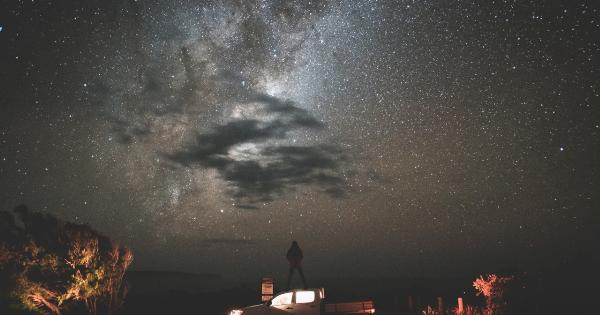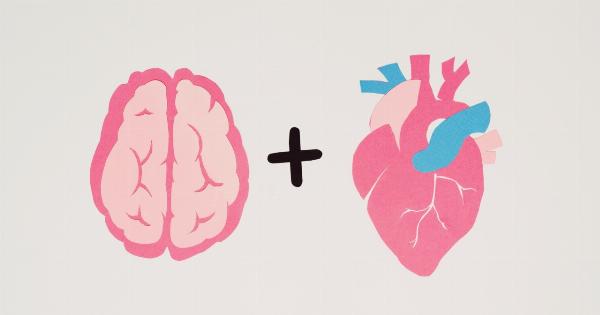Depression is a debilitating mental disorder that affects people of all ages, races, and genders. According to the World Health Organization, over 264 million people worldwide suffer from depression.
Globally, depression is the leading cause of disability, and it’s a major contributor to the overall burden of disease. Despite the availability of various treatments, including therapy and medication, depression remains a challenging condition to treat. However, new research suggests that a compound found in magic mushrooms may help alleviate symptoms of depression.
What Are Magic Mushrooms?
Magic mushrooms are a type of fungi that contain psychoactive compounds, including psilocybin. Psilocybin is a prodrug that the body metabolizes into psilocin, a compound that acts on serotonin receptors in the brain.
When ingested, psilocybin and psilocin can cause altered sensory perceptions, including visual and auditory hallucinations. Magic mushrooms have been used for centuries for religious and spiritual purposes in various cultures worldwide, and they’re also used recreationally.
The Potential of Psilocybin in Treating Depression
Recent studies have shown that psilocybin may have therapeutic effects in treating various mental health conditions, including depression, anxiety, and addiction.
One study conducted at Imperial College London found that a single dose of psilocybin was effective in reducing symptoms of depression in patients who did not respond to conventional antidepressants.
The study included 20 patients with moderate to severe treatment-resistant depression, and they received two doses of psilocybin with a one-week interval.
At one week and three months after receiving the psilocybin treatment, the patients reported significant improvements in their mood and decreased levels of anxiety and stress. Additionally, six months after treatment, half of the patients were in complete remission from depression, a remarkable finding considering the participants’ resistance to traditional antidepressants.
Another study published in JAMA Psychiatry investigated the long-term effects of psilocybin-assisted therapy on depression and anxiety in people with life-threatening cancer.
The study included 29 participants, and they received two doses of psilocybin in conjunction with psychotherapy. The results showed significant improvements in the participants’ depression and anxiety symptoms, which persisted for up to six months after treatment.
The Biological Mechanisms of Psilocybin in Treating Depression
The reason psilocybin may be effective in treating depression is still under investigation. However, some researchers suggest that it may be due to the compound’s effects on the brain’s default mode network (DMN).
The DMN is a network of brain regions that are active when we’re at rest. In people with depression, the DMN is overactive, leading to excessive self-reflection and rumination.
Psilocybin has been shown to decrease activity in the DMN, leading to a temporary disintegration of the ego or self.
This can lead to a feeling of connectedness with others and the world around us, which may be therapeutic for people with depression, who often feel isolated and disconnected from others.
The Challenges of Using Psilocybin as a Treatment for Depression
Despite the promising results of the studies on psilocybin and depression, there are still some challenges to using psilocybin as a treatment for depression.
One of the main challenges is the stigma associated with magic mushrooms and other psychedelic substances. These substances have been classified as Schedule I drugs, which means they’re illegal and have no accepted medical use.
Another challenge is the lack of regulations and standardized dosing guidelines for psilocybin.
Currently, the only legal way to use psilocybin in research is through clinical trials, which are tightly regulated and require extensive resources to conduct. Additionally, the psychoactive effects of psilocybin can be intense, and the experience can be unsettling for some people, which may limit its use in clinical settings.
The Future of Psilocybin Research in Treating Depression
Despite the challenges, psilocybin research for treating depression is gaining traction, and there’s optimism that it could lead to a new class of medications for psychiatric disorders.
In late 2018, the FDA granted Breakthrough Therapy designation to COMPASS Pathways, a UK-based company that’s conducting clinical trials on psilocybin for treatment-resistant depression. The designation is intended to expedite the development and review of drugs that show significant promise in treating serious or life-threatening conditions.
There are also efforts to decriminalize psilocybin and other psychedelic substances in some jurisdictions, including Denver and Oakland in the United States.
The hope is that decriminalization could lead to more research and less stigma surrounding these substances, allowing for greater potential to treat depression and other mental health conditions.
Conclusion
Depression is a challenging mental disorder that affects millions of people worldwide. Despite the availability of various treatments, there’s still a significant need to develop new and more effective treatments for depression.
Recent research has shown promising results in using psilocybin, a compound found in magic mushrooms, as a treatment for depression. Although there are still some challenges to using psilocybin as a treatment for depression, the growing research and support for psilocybin highlight its potential as a new class of medications for treating psychiatric disorders.


























